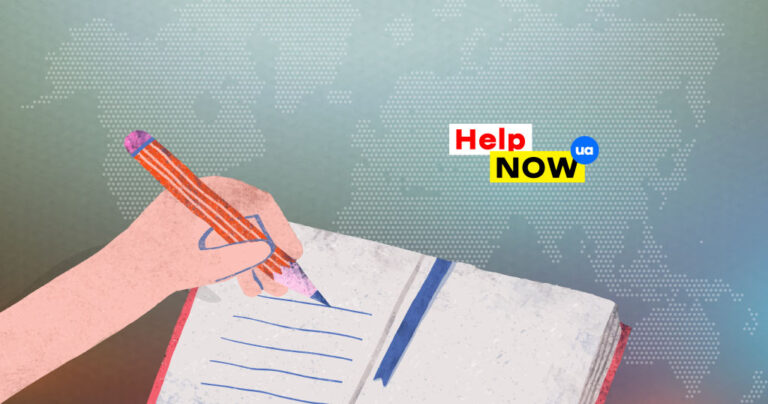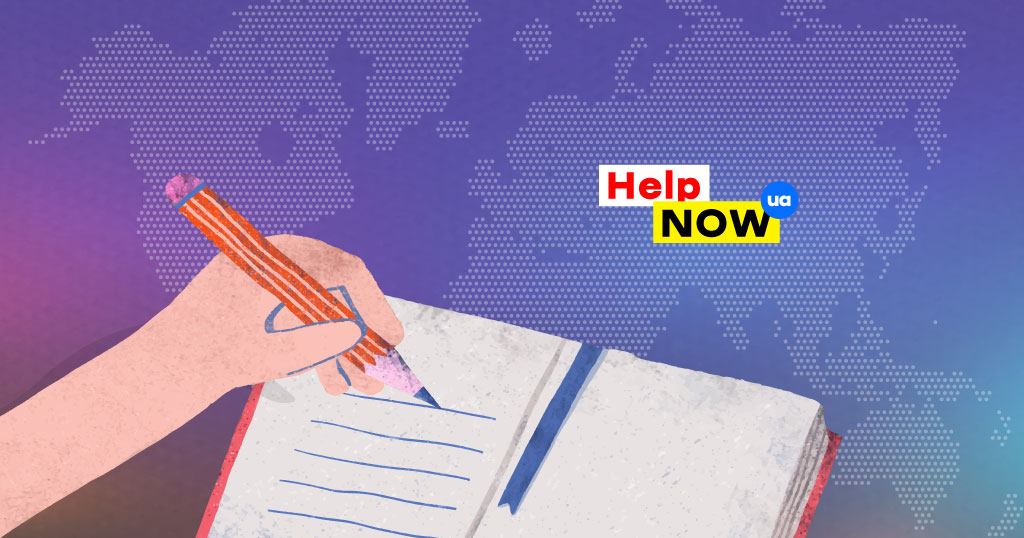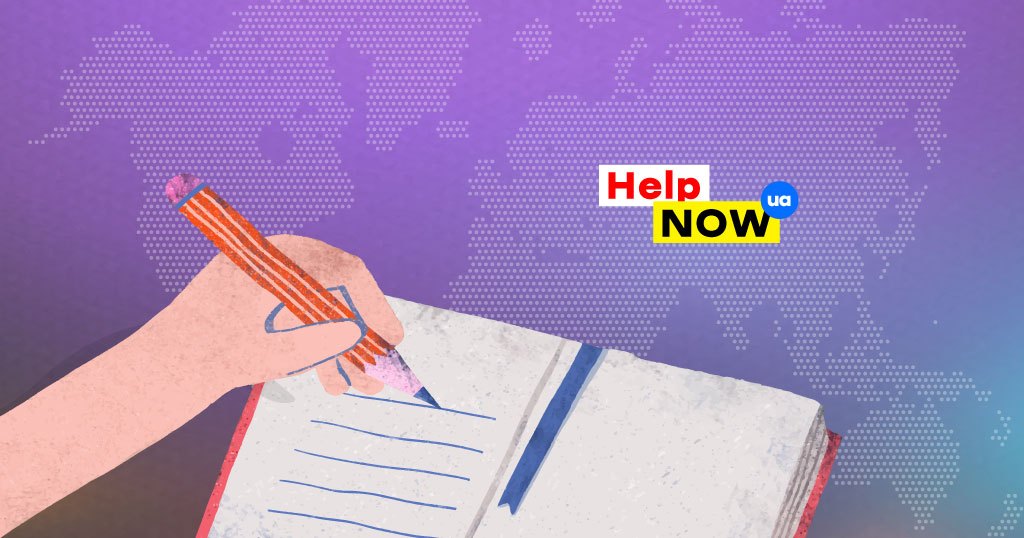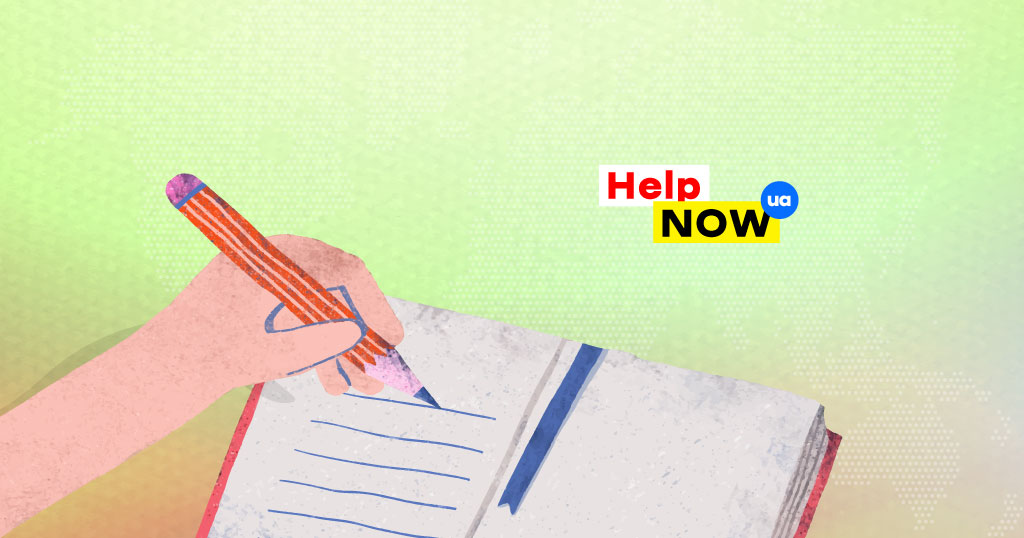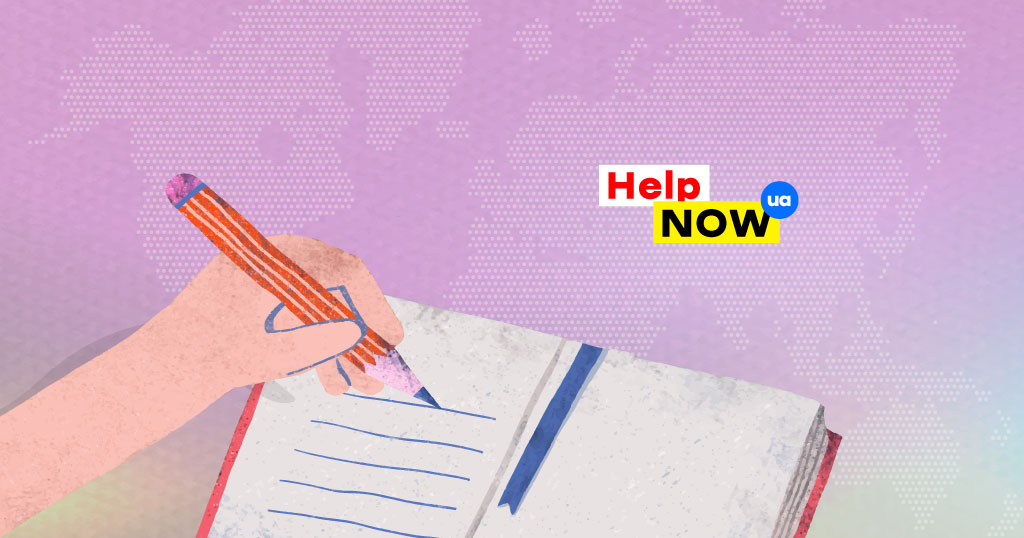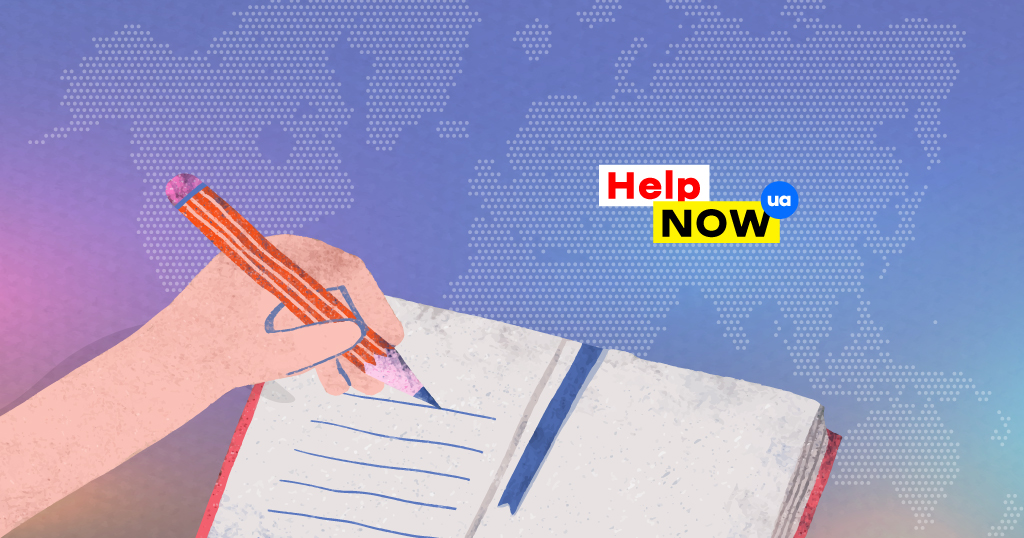I am from Ukraine, from Kyiv, my name is Andrew (name changed at the client’s request), and I am the administrator of the HelpNow service in the German hub. I have been in Germany since March 2022. I did not know German. How I see my task: first of all, to reassure the person who addresses us for help. They don’t know how to act. They don’t know how to find what they need.
Accordingly, Step 1: reassure the client. Step 2: provide them with a precise algorithm of actions in order for them to understand what needs to be done; Step 3: prepare them for a visit to the doctor; and Step 4: accompany them (if they need it). I mean online during their stay with the doctor.
I live in Germany as a displaced person. My adaptation was not particularly noticeable. That is, it was going well. Everything was sorted out quickly. With my family, I left Ukraine and in a new country, I applied my experience gained in Ukraine, namely, solving problems and building algorithms to find a way out and solve the situation. We were invited to our city by a very good man, a very good family friend. We found accommodation and after arrival, everything was already prepared for us.
We live with very good people – the Germans. We have a friendly relationship with them. Therefore, the adaptation went unnoticed by me and my whole family: my wife, mother-in-law, and son.
As for me, I also went to see doctors in Germany. There are no difficulties, as far as I see.
Everything is going great and easy. I can tell you that I was lucky with the doctor. You can call him back. You can talk, you can arrange a meeting.
Then when it was necessary to get vaccinated against covid, I addressed the family doctor: I came, got an injection – and that’s it.
How did I find such a doctor? They recommended him to me when I went to Germany. I already knew who I was going to talk to. But here, based on the feedback our clients make, in fact, there are extremely compassionate doctors with a developed sense of empathy. They go into the client’s history and help them from beginning to end. But I noticed that this applies most to children with diagnoses that are part of our specialization. But there are cases when clients say the doctor treated them extremely cold.
Communication with our customers is essential here. I recommend them to prepare VERY well for a visit to the doctor. Be proactive, do not wait for the doctor to ask something. It is worth calling our translator in advance, explaining all your medical problems so the translator is ready to see a doctor. Then the visit to the doctor goes more or less well.
The appointment may only have a problem if the client needs an ultrasound, X-ray, or tomography. This is not done in the same way as in Ukraine. If it can be done within one week in Ukraine, then the terms are much longer, and it is difficult for our people to understand. I talk to the Germans, and that is OK for them to do an ultrasound in 2 months. For us, it’s kind of weird, because in Kyiv, we could come on Monday, learn about what we need to do ultrasound, and do it on Tuesday. Well, there are other rules, and there is insurance medicine.
Difficulties can also be at the person’s level – with the person’s attitude to life, in principle. Again, proactivity is a must. It won’t be easy if a person assumes that someone will do something for them here and accordingly places their expectations on others. Here the country is different; you need to be more active and everything will be fine. If a person does not take this seriously, they do not come to the doctor on time. What is possible in Ukraine is not desirable here. People don’t like to be late at the doctor’s.
We are always nearby, but we warn the client that he must arrive on time, preferably in advance, at least 15-20 minutes in advance.
Even leaving the area, when a person arrives, they don’t have a clinic in Kyiv. It could be an old office building. The clinic may be located on one of these floors. Floors in Germany are counted differently. Therefore, a person needs to arrive in advance, find it all, and call an interpreter.
Proactive clients do that.
We had one almost sightless client with ten percent sight. We told her the doctor’s appointment address, and she arrived the day before and made a route. But she paved it not on the map. She did it physically – reached the office, understood how long it takes, and the next day arrived on time. If a person does this, then everything is fine.
Thus, a significant problem is the irresponsible attitude of the client in order to get to the doctor on time to get the service that he wants.
Recommendations for those people who are still in Ukraine and are going to leave: take with you as much ART or OST drugs as possible (depending on what kind of person you need). Because there will be no problems with the algorithm, but getting insurance can be a problem. And at the very beginning of our activity, the main problem was this insurance. At that time, it could be obtained in a reasonable time in Sozialamt. Since July last year, everything has moved to Jobcenter, and people have received insurance with a delay. In some lands, it is in two weeks; in others, it is in two months.
A proactive option is to take contacts independently, and addresses of insurance companies, come there and insist that you need insurance. They will give you the insurance number. This is enough to go to the doctor for an appointment.
Thus, the most important thing is to take ART drugs with you for at least three months, if OST – for the maximum possible period, if there are other chronic diseases – also with a margin. And it is also important to come not with packeges but with medical statements, preferably even translated. In this case, therapy can be given for longer if the doctor sees a medical discharge. After arriving in Germany, he will take a proactive position and immediately take up the issues of registration, JobCenter, and insurance.
Last year, there were a lot of appeals from clients with ART interruption. That is, there were even cases when the client called and said: “Hello, I have not taken art for 3-4 months. Could you help me?” The reason for such interruptions is mostly the person, precisely in his inactive position. Even if a person has left Ukraine, for the most part, contacts with social workers and doctors from Ukraine remain. Social workers and infectious disease specialists knew the connections between our Hub and the service from the beginning since working meetings with infectious disease specialists. They talk about where to turn for patients who went abroad.
Now, thank God, everything is settled – customers call in a timely manner. I recommend not to postpone the visit to the doctor because it is necessary to take CD4 tests regularly and for viral load. It is essential that the person establishes contact with the doctor and that he has the opportunity to come, take tests, tell him what regimen he takes and how many days are left, and appoint the next visit so that there is no interruption.
On the continuation of the service after a year of work.
I think we need that help anyway. Because even by the number of initial requests, I see there are primary requests and repeated requests. Customers who previously contacted us still call. They are interested not only in medical services but also in social services. Clients have conflicts with tenants, with neighbors. It is important to have a social and psychological support service so that here they do not establish firewood and do not enter into such frank conflicts with landlords, do not turn to the police on their neighbors, but calmly resolve all issues.
The main task of every person is to be calm and in harmony with himself and others. But not everyone can find the strength to cope with it on their own. And some of these forces do not, and they need a psychologist.
Some customers have destroyed homes, and they have nowhere to go. It would be relevant and useful to deal with the issue of compensation for destroyed housing. Develop an algorithm for how much clients deal with the issue of restoration and compensation for the destroyed property on the territory of Ukraine while still in Germany. This can be a matter of property, and it can also be a loss – a father, brother, or loved one who died in the war and the related receipt of compensation associated with the death of a loved one. These may be issues related to inheritance. For example, a person is in Germany, a loved one has died on the territory of Ukraine, and a person cannot contact a notary within six months. It would be possible for a person to offer certain services in each and individually taken case. Mothers have questions related to alimony. You can help solve their problems here while in Germany because these problems are still in Ukraine. After all, Dad is there, and if Dad does not pay the alimony that the client needs, you can do it from here.

